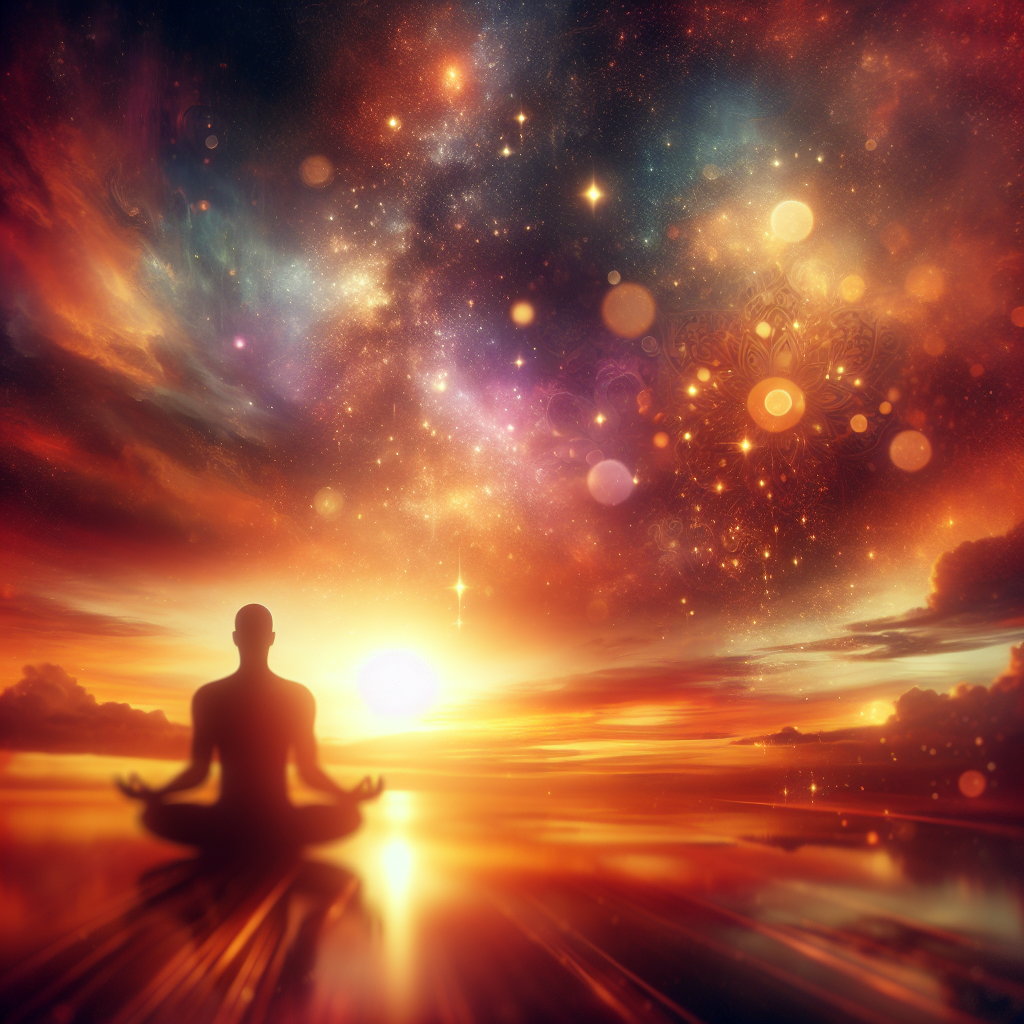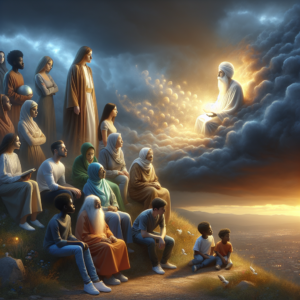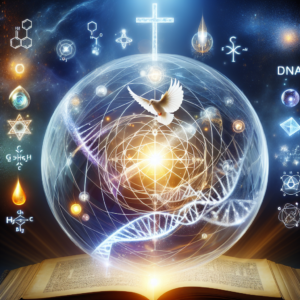Spiritual Devotional about Consciousness
Exploring the Depths of Consciousness: A Spiritual Journey
Greetings, beloved reader! Today, we embark on a profound exploration of consciousness—a divine gift that elevates us as beings capable of love, creativity, and transcending the mundane. In our journey, let us draw upon the wisdom of the Holy Scriptures, offering us guidance and insight into this magnificent realm of existence. 🌟
Consciousness is often described as the awareness of self and environment, a delightful dance between mind, spirit, and body. It is the divine breath that breathes life into each one of us, echoing the words of Genesis 2:7, "Then the LORD God formed man from the dust of the ground and breathed into his nostrils the breath of life, and the man became a living being." Herein lies the beautiful truth—we are not mere creatures but living, conscious souls, animated by God’s breath.
As we ponder the depth of consciousness, let us consider what the apostle Paul wrote to the Corinthians: "We have the mind of Christ" (1 Corinthians 2:16). This statement is a powerful reminder that our consciousness can be aligned with divine wisdom, allowing us to embrace thoughts and actions that reflect God’s infinite love and grace. Just as Christ walked with purpose and awareness, we too can navigate life with a consciousness attuned to God’s will.
Consciousness is our sacred space for growth and transformation. Ephesians 4:23 calls us to "be renewed in the spirit of your minds," urging us to embrace a consciousness that evolves towards love, kindness, and compassion. Each day presents countless opportunities to renew our minds and elevate our consciousness, making choices that honor our Creator and serve those around us.
Moreover, Philippians 4:8 offers a wonderful blueprint for cultivating a positive consciousness: "Finally, brothers and sisters, whatever is true, whatever is noble, whatever is right, whatever is pure, whatever is lovely, whatever is admirable—if anything is excellent or praiseworthy—think about such things." This verse encourages us to focus our thoughts on the goodness around us, unlocking the power of conscious positivity and gratitude.
Embracing our consciousness also means being mindful and present, experiencing the beauty of creation and acknowledging God’s handiwork in every moment. As Psalm 46:10 so eloquently expresses, "Be still, and know that I am God." In moments of stillness, our consciousness becomes a sacred altar where we can hear God’s gentle whispers and feel His profound presence.
In your spiritual journey, dear reader, may you find joy in the unfolding of your consciousness, discovering the wonders it holds and the pathways it opens for growth and connection. As we strive to cultivate a consciousness rooted in love and awareness, let’s encourage one another—lifting each other up and shining like beacons of God’s grace in a world longing for light.
Thank you for joining me today on this uplifting exploration. May your spirit be filled with peace, your mind with wisdom, and your heart with boundless love. Until next time, may you walk consciously in the light of His love. 🙏❤️
Blessings and peace,
[Your Name]
Explore and dig up answers yourself with our BGodInspired Bible Tools! Be careful – each interaction is like a new treasure hunt… you can get lost for hours 🙂
Q&A about Consciousness
Certainly! Here’s a Q&A format discussion about consciousness:
Q1: What is consciousness?
A1: Consciousness is the state of being aware of and able to think about one’s own existence, thoughts, surroundings, and experiences. It includes various levels of awareness and perception, encompassing phenomena like wakefulness, self-awareness, and the sense of subjectivity.
Q2: How do scientists study consciousness?
A2: Scientists study consciousness using a combination of methods from neuroscience, psychology, and philosophy. These methods include neuroimaging techniques like fMRI and EEG to observe brain function, cognitive experiments to understand perception and attention, and philosophical inquiry to explore the nature and implications of conscious experience.
Q3: What are some major theories of consciousness?
A3: Some prominent theories include:
-
Global Workspace Theory: This theory suggests that consciousness involves information being broadcast to various parts of the brain, allowing different processes to become accessible to conscious reflection and decision-making.
-
Integrated Information Theory (IIT): IIT posits that consciousness is a product of integrated information processing, where the level of consciousness is determined by the system’s ability to integrate information.
-
Higher-Order Theories: These propose that consciousness arises when a mental state is about another mental state, suggesting that higher-order thoughts about perceptions or experiences create the conscious experience.
Q4: Is consciousness unique to humans?
A4: While humans are considered highly conscious beings due to their advanced cognitive and reflective capabilities, consciousness is not unique to humans. Many researchers agree that animals exhibit varying degrees of consciousness based on their cognitive capacities. Studies on animal behavior, neuroscience, and cognition provide evidence of consciousness in species like primates, cetaceans, and certain bird species.
Q5: Can artificial intelligence become conscious?
A5: The possibility of artificial intelligence achieving consciousness is a subject of ongoing debate. Current AI systems can simulate aspects of human intelligence and perform complex tasks, but there is no evidence that they possess consciousness. Achieving machine consciousness would require fundamental breakthroughs in understanding and replicating the neural processes that underlie conscious experience.
Q6: Why is consciousness sometimes referred to as the ‘hard problem’?
A6: Philosopher David Chalmers coined the term "hard problem of consciousness" to refer to the challenge of explaining how and why physical processes in the brain give rise to subjective experiences. While we can understand the neural correlates of consciousness (the ‘easy problems’), explaining the actual experience or qualia remains elusive.
Q7: How does consciousness relate to the brain?
A7: Consciousness is usually understood as a product of complex interactions within the brain. Neuroscientists have identified specific brain regions, such as the thalamus and prefrontal cortex, as crucial for conscious experience. However, the complete mechanism of how neural activities translate into conscious experience remains an active area of research.
Q8: What is self-consciousness?
A8: Self-consciousness is a heightened awareness of oneself as an individual, separate from others and the environment. It involves recognizing one’s own thoughts, feelings, actions, and existence, and plays a critical role in self-reflection, introspection, and identity formation.
Feel free to ask more questions if you’re interested in particular aspects of consciousness!


